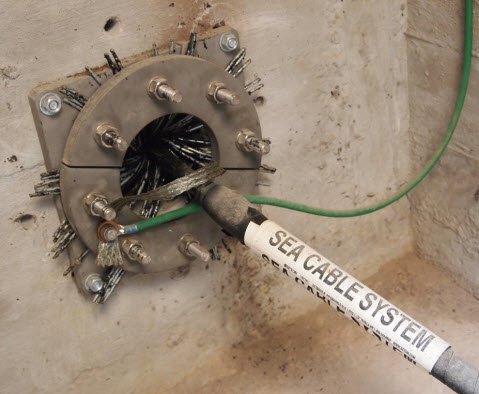The Daily Herald writes in an opinion that some may have been surprised to read in Wednesday’s paper that an agreement had been signed for the Saba, Statia Cable System (SSCS). After all, the government in Philipsburg originally had objected to plans of the National Service Caribbean Netherlands RCN to land a fibre optic cable at Great Bay for that purpose. Moreover, when Minister of Tourism, Economic Affairs, Transport and Telecommunication Ted Richardson announced recently that parties were close to a deal, UP leader and coalition partner Theo Heyliger immediately fired off a series of questions that seemed to indicate there still could be problems.
Apparently the involvement of Smitcoms, the international traffic branch of the TelEm Group, removed any remaining concerns, however. The latter is actually quite logical, because RCN originally partnered with UTS. Although St. Maarten also has a minority share in this Curaçaobased company, the interests of competitor TelEm that it owns 100 per cent obviously prevailed.
Making the switch is partly possible because there was no contract with UTS, as became clear during the court case in which RCN unsuccessfully tried to force a decision in its favour. The matter does raise an issue regarding the future of UTS on the Dutch side if its own minority shareholder is always going to choose for the “other side” with TelEm in such situations. Is it fair to hang on to St. Maarten’s shares in UTS under those circumstances?
In any case it seems one of the conflicts with the Netherlands involving the special overseas entities now has been resolved, while an exemption from turnover tax (ToT) for products transhipped directly to St. Eustatius and Saba reportedly is being worked out.
One can’t escape the impression that had these and other disputes on a medical evacuation helicopter for the two sister islands operating at SXM Princess Juliana International Airport (PJIA), on a joint border information system and on the Coast Guard been handled a bit differently, perhaps relations with The Hague would not be as strained now.
In that case a joint integrity investigation instead of one imposed by the Kingdom Council of Ministers via the governor still might have been an option.

 Archive of posts from Saba-News.com Archive Saba News
Archive of posts from Saba-News.com Archive Saba News